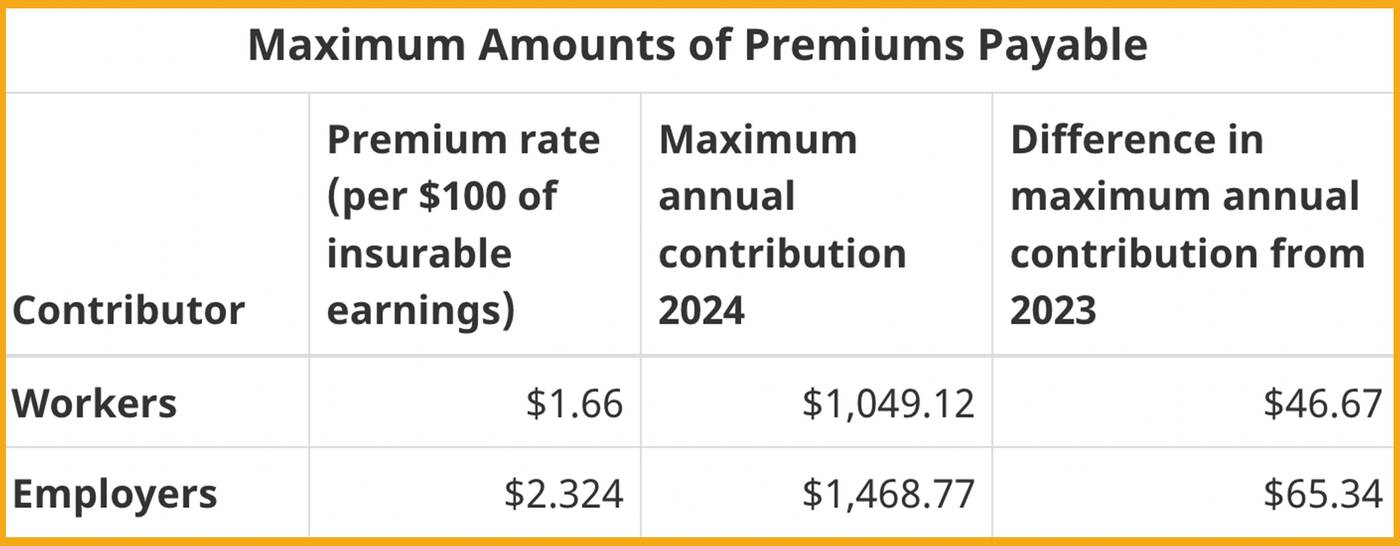
Take-home income to decrease across Canada next month due to a tax hike
Be prepared to see a dip in your take-home income starting next month due to tax hikes.
Both the Canada Pension Plan and federal Employment Insurance (EI) will see changes that will ultimately impact your take-home pay.
The Canadian Federation of Independent Business (CFIB) provided a breakdown of what's to come for employees and employers in the new year.
As of January 1, 2024, the EI premium rate will increase from $1.63 to $1.66 for every $100 for employees and from $2.28 to $2.32 for every $100 for employers.
It's not just EI premium rates that will be going up.
Every year, employees pay into EI until they hit the income threshold — known as Maximum Insurable Earnings (MIE). But in 2024, that number is also rising. It will increase from $61,500 to $63,200 in 2023. This means the maximum annual EI contribution for an employer goes up by $65.34 to $1,468.77 per employee.

Chart of Maximum Amounts of Premiums Payable from the Government of Canada.
When it comes to CPP contributions, there's an annual ceiling of 5.95% that has to be paid, and the maximum contribution will be $3,867.50 — up from $3,754.45 in 2023.
According to the federal government, the maximum pensionable earnings under the CPP will be $68,500, which is up from $66,600 in 2023.
A second CPP ceiling will also be implemented in 2024, which will see a 4% contribution from middle-income employees and their employers on incomes between $68,500 and $73,200, meaning there's a maximum contribution of $188 for the employer and employee.
CFIB notes that these changes will see payroll taxes increase for employers by $366 per employee and total employer contributions for CPP and EI could add up to $5,524 per employee next year.
What's more, this doesn't take into account a business' location. Depending on location, an employer could pay between three to seven various payroll taxes.
In October, the CFIB released a statement expressing its disappointment with the federal government for not taking the opportunity to reject the EI premium hike.
"When a government increases payroll taxes, it increases the cost of labour, forcing many business owners to make tough decisions," said Christina Santini, CFIB's director of national affairs in a statement.
"It may require some business owners to review their wage and hiring plans, decrease expenditures, or increase the price of their products and services. But businesses can only raise prices so much while remaining competitive."
"Payroll tax increases make it less affordable for employers to raise wages and create new jobs," she added.
JHVEPhoto/Shutterstock
Latest Videos
Latest Videos
Join the conversation Load comments







